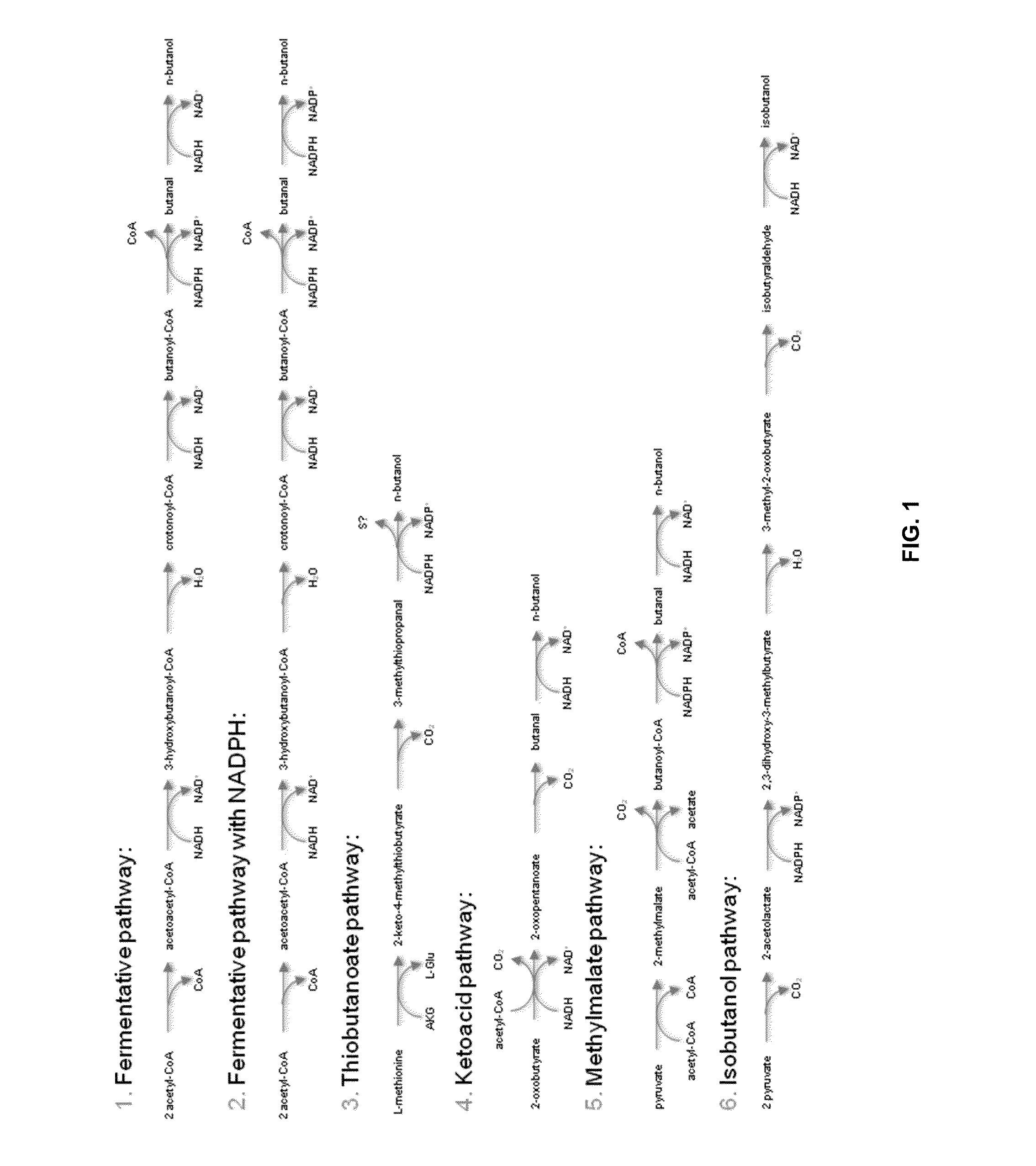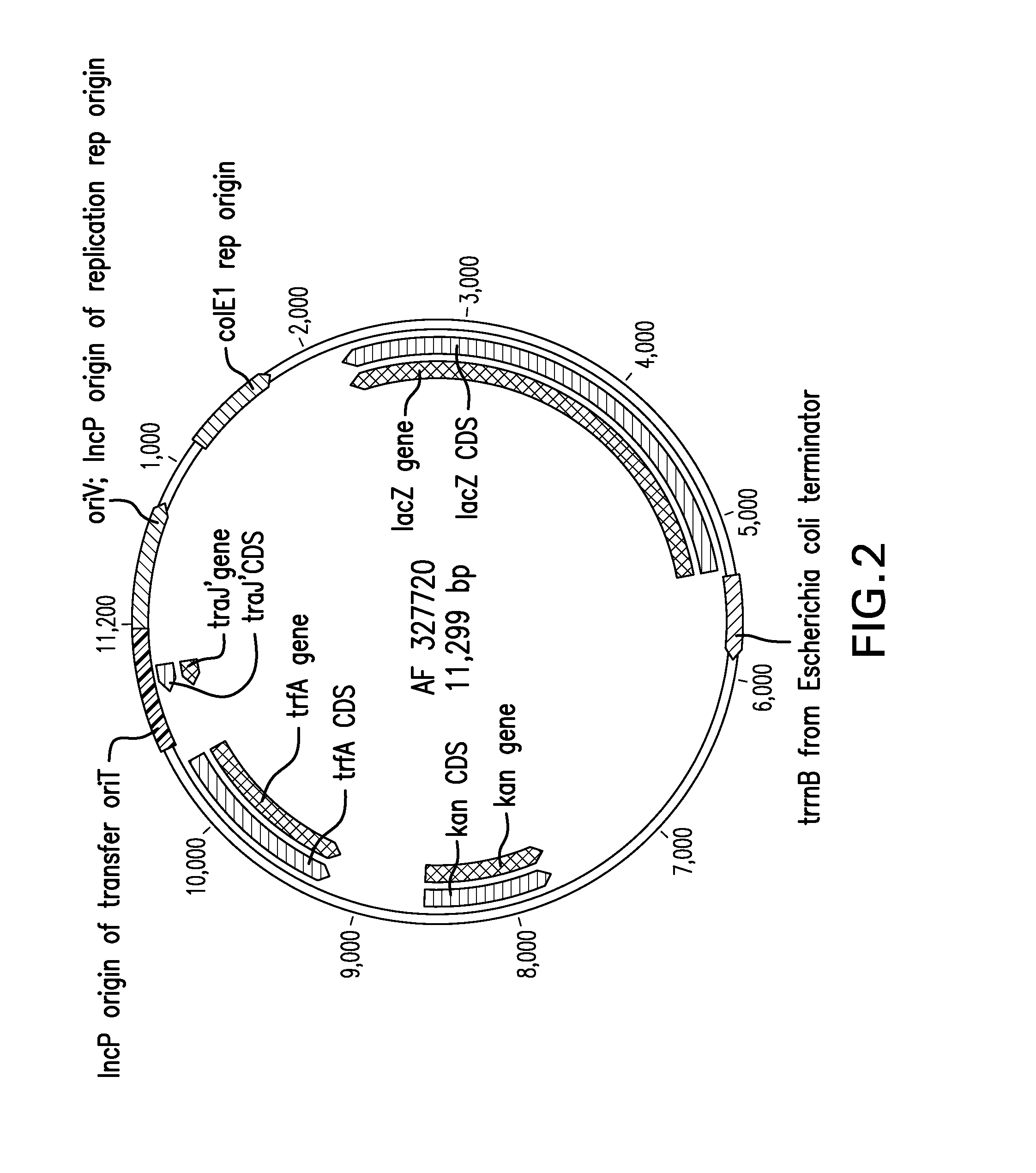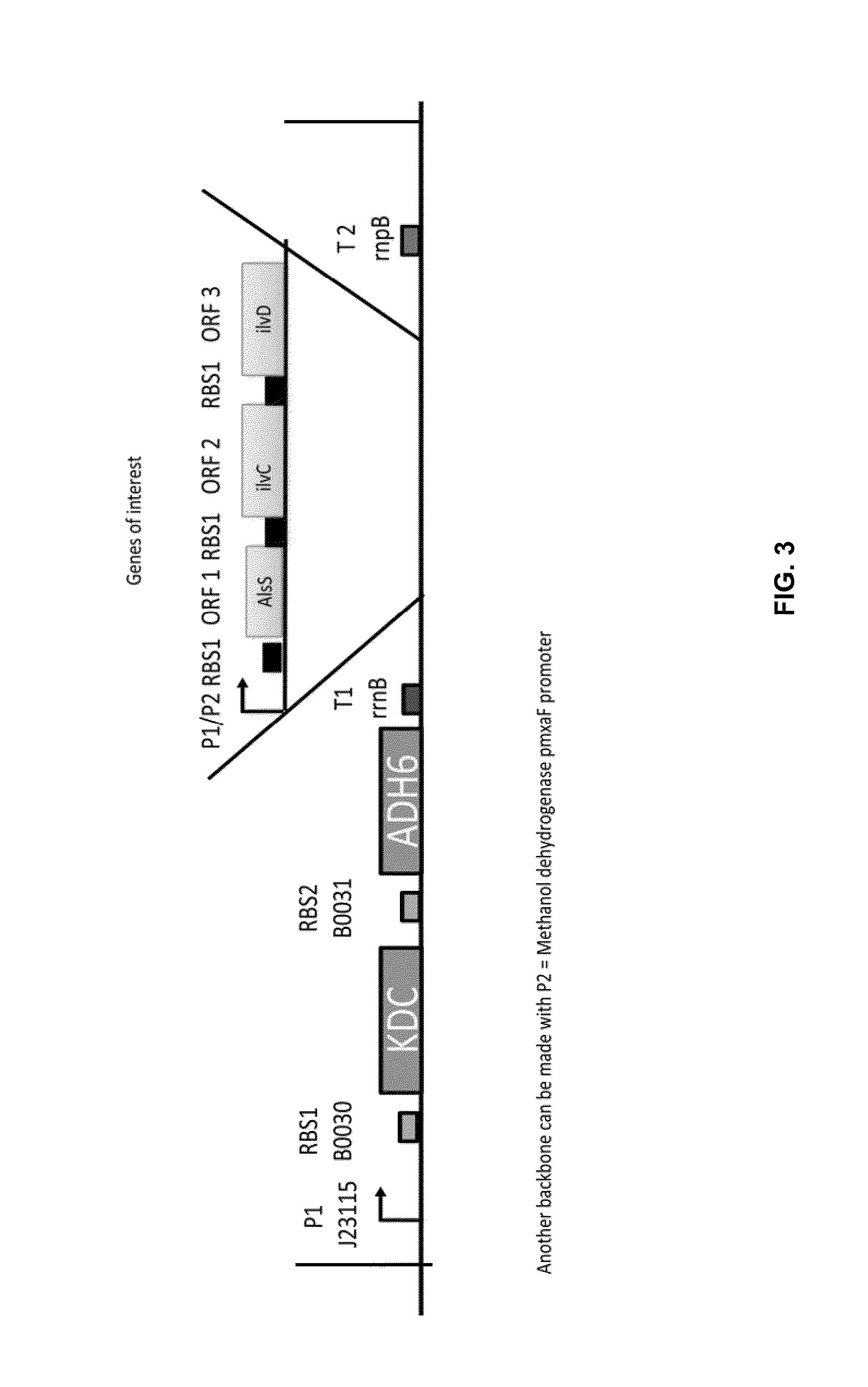Biological Conversion of Multi-Carbon Compounds from Methane
a technology of methane and multi-carbon compounds, applied in the field of molecular biology, can solve the problems of increasing the percentage of ethanol blended into gasoline, reducing the overall fuel economy of the vehicle, and reducing the use of ethanol based bio-fuels, etc., and achieve the effect of improving the environmental footprin
- Summary
- Abstract
- Description
- Claims
- Application Information
AI Technical Summary
Benefits of technology
Problems solved by technology
Method used
Image
Examples
example 1
Biosynthetic Production of Isobutanol from Methane
[0175]Initial experiments were performed to confirm and validate enzymatic activity of isobutanol pathway enzymes at the relatively high temperatures (i.e., 45° C.) requisite for growth of one preferred methanotroph host organism, Methylococcus capsulatus (Bath). Thus, in this example, the methanotroph M. capsulatus was engineered in the first series of experiments to overexpress two isobutanol pathway enzymes, ketoacid decarboxylase (KDC) and alcohol dehydrogenase (ADH), prior to introducing the full complement of five isobutanol pathway enzymes (Atsumi et al., 2010) into M. capsulatus. Following the functional validation of KDC and ADH activity in M. capsulatus (set forth below), the complete five-gene isobutanol pathway was introduced into M. capsulatus, the results of which are set forth below.
Gene Selection, Synthesis and Cloning
[0176]For the two-gene (isobutanol) pathway experiments (and for the downstream section of the five-g...
example 2
Biosynthetic Production of 1-Butanol from Methane
[0200]A ketoacid pathway analogous to that described in Example 1, but designed to produce 1-butanol (n-butanol) is engineered in a single carbon (C1) metabolizing microbial host, such as M. capsulatus (Bath). In this example, L-threonine (which is ultimately generated from methane via phosphoenolpyruvate) is first de-aminated to 2-ketobutyrate (2-oxobutanoate) by the action of threonine dehydratase (also referred to in the art as threonine ammonia-lyase (EC 4.3.1.19) encoded by the genes ilvA or tdcB) (Shen & Liao, 2008). The tdcB gene product has the biotechnological advantage that the enzyme is a catabolic enzyme, and is not feedback inhibited by L-valine or L-isoleucine (Guillouet et al., 1999).
[0201]In the second reaction step, the reaction catalyzed by leuA (encoding isopropylmalate synthase / 2-ethylmalate synthase (EC 2.3.3.6)) combines 2-ketobutyrate, acetyl-CoA, and H2O to create (R)-2-ethylmalate. In the third reaction step, ...
example 3
Biosynthetic Production of Fatty Alcohols from Methane
[0214]Conversion of methane to diesel components requires engineering the native metabolism of methanotrophs. The two principal native pathways that can be engineered for increased production of diesel components are the fatty acid pathway and isoprenoid pathway. In the current example, the invention describes the use of the fatty acid pathway for synthesis of diesel (wax ester) components.
[0215]Fatty acids are an important source of energy and adenosine triphosphate (ATP) for many cellular organisms. Excess fatty acids, glucose, and other nutrients can be stored efficiently as fat. All cell membranes are built up of phospholipids, each of which contains fatty acids. Fatty acids are also used for protein modification. Fatty acid synthesis is the creation of fatty acids from acetyl-CoA and malonyl-CoA precursors through action of enzymes called fatty acid synthases. Fatty acid chain length and degree of saturation depends on the h...
PUM
| Property | Measurement | Unit |
|---|---|---|
| temperatures | aaaaa | aaaaa |
| pore-size | aaaaa | aaaaa |
| temperature | aaaaa | aaaaa |
Abstract
Description
Claims
Application Information
 Login to View More
Login to View More - R&D
- Intellectual Property
- Life Sciences
- Materials
- Tech Scout
- Unparalleled Data Quality
- Higher Quality Content
- 60% Fewer Hallucinations
Browse by: Latest US Patents, China's latest patents, Technical Efficacy Thesaurus, Application Domain, Technology Topic, Popular Technical Reports.
© 2025 PatSnap. All rights reserved.Legal|Privacy policy|Modern Slavery Act Transparency Statement|Sitemap|About US| Contact US: help@patsnap.com



